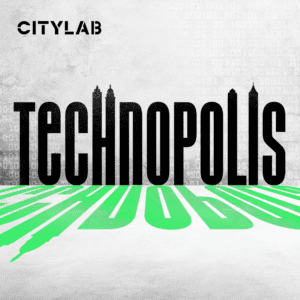When Molly Turner started as Airbnb’s first policy liaison back in 2011, most people in urban planning and government were still thinking of tech as an industry—rather than a force that was about to unleash a barrage of services and technologies that would disrupt the very fabric of city life.
Five years later, Turner took what she had learned on the front lines of this disruption to create the Berkeley Haas course on the topic, “Tech and the City: How to get urban innovation right.”

“I was both inspired and terrified by how much money was pouring into what I call ‘real-world tech startups,’ because I noticed that the entrepreneurs and the investors building them didn’t know very much about the cities they were disrupting,” says Turner, a lecturer in the Haas Business & Public Policy Group the whose background is in urban planning. “It felt like a very good time to go and teach the future tech leaders at the business school a little bit about cities.”
Now, Turner’s course has inspired a new podcast, “Technopolis,” produced by The Atlantic’s CityLab and which she co-hosts with Jim Kapsis, a Washington D.C.-based start-up advisor. The first eight-episode season launched today.
Remaking, disrupting, overrunning
Each episode is inspired by “a technology that is remaking, disrupting, or overrunning our cities in some way, good or bad,” Turner says. In some cases it’s a specific company, in others it’s a concept such as autonomous vehicles.
“We start by asking what we know about it right now, and then we bring in guests to broaden our thinking and ask the questions people aren’t asking about this stuff,” Turner says. “What could this mean for cities 50 years from now? What are some of the impacts that no one is planning for, and some of the unintended consequences, both good and bad? And what does it mean for our lives in cities, and how cities govern.”

The show’s guests come from some of the hottest tech companies and from city government, and also include academics and researchers who provide historical, philosophical, or futurist perspectives. The first season is sponsored by WeWork—though the company has nothing to do with the content, she says.
Turner says it was Kapsis, a friend who had served as a climate advisor in the Obama administration and with whom she often discussed these topics, who proposed the idea that they host a podcast together. So they pitched it to CityLab, “the best publication covering what’s going on in cities and what the future of cities look like,” she says. CityLab provides an editor-in-chief, seasoned radio producers, and access to the deep knowledge and connections of its reporting staff.
“It’s a true partnership,” she says.
From VC explosion to batteries and more
 Episode 1 of Technopolis starts at the beginning, in a sense: it’s all about venture capital, and why tech investors are so interested in cities all of a sudden. They look at what that means for city leaders, and how the venture capital influx has transformed jobs as city halls.
Episode 1 of Technopolis starts at the beginning, in a sense: it’s all about venture capital, and why tech investors are so interested in cities all of a sudden. They look at what that means for city leaders, and how the venture capital influx has transformed jobs as city halls.
The second episode covers autonomous vehicles, exploring some of the impacts no one is thinking about, while the third episode looks at batteries, and whether they may soon be turning buildings into mini power plants.
What about electric scooters? “Of course the scooters have home up—I think they’ve been mentioned several times in the first three episodes already, because they’re such a visible example for everyone in cities about how technology is changing our lives,” Turner says. While they haven’t devoted an episode entirely to scooters, Turner says they do explore the different tactics scooter companies and other startups are using to deal with city government.
“Is it better to ask for permission or beg for foregiveness? Companies are definitely trying both,” she says.
Listen or subscribe to Technopolis for free on Apple Podcasts, Stitcher, or Google.